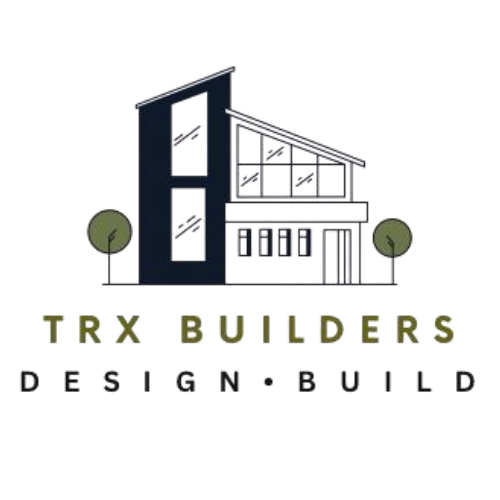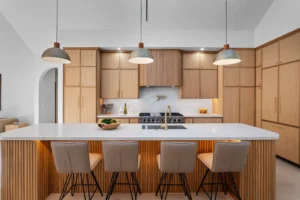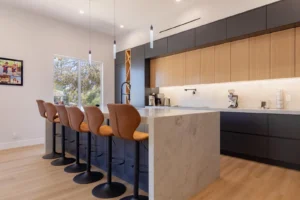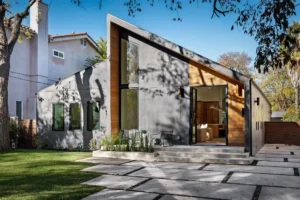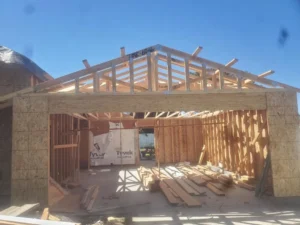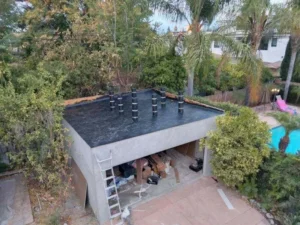Kitchen remodeling is one of the most popular—and often rewarding—home improvement projects. A well-designed kitchen not only enhances the look and feel of your home, but it also increases its functionality and value. Whether you’re looking to update outdated appliances, create an open-concept layout, or transform your space into a chef’s dream, kitchen remodeling can make a significant impact on your home.
But, like any renovation project, the question on every homeowner’s mind is: “How much does kitchen remodeling cost?”
The truth is, the cost of a kitchen remodel can vary significantly depending on a variety of factors, such as the size of the kitchen, the complexity of the design, the quality of materials, and the scope of work required. In this article, we’ll explore what affects kitchen remodeling costs, break down the different types of remodels, and give you a clearer idea of what you can expect to spend.
Factors That Influence the Cost of Kitchen Remodeling
Several key factors play a role in determining the cost of your kitchen remodel. Understanding these will help you make informed decisions about your project and manage your budget effectively.
1. Size of Your Kitchen
The size of your kitchen is a significant factor in determining how much you’ll spend. Larger kitchens will require more materials, labor, and time to remodel, naturally raising the cost. On average, kitchen sizes range from 100 to 300 square feet, with larger kitchens requiring more extensive work to achieve a full transformation.
The layout of the kitchen also impacts the overall cost. If you’re planning a full redesign that includes moving walls or adjusting the layout to improve flow, this will add more to the price compared to a simple update or refresh.
2. Scope of the Remodel
The scope of your kitchen remodel is another major determinant of cost. Are you looking for a simple cosmetic makeover, or are you planning a complete overhaul? Here’s a breakdown of the different types of remodels:
- Minor Remodel: This includes smaller updates, such as new paint, replacing countertops, updating light fixtures, or installing new appliances. Minor remodels can be more budget-friendly, ranging from $5,000 to $15,000.
- Mid-Range Remodel: A more extensive remodel that includes replacing cabinets, countertops, and flooring, and possibly moving or adding a few appliances. This type of remodel usually ranges from $15,000 to $40,000, depending on the finishes and materials chosen.
- High-End Remodel: A full kitchen renovation with custom cabinetry, high-end appliances, new flooring, and luxury finishes. High-end remodels can cost anywhere from $40,000 to $80,000 or more, depending on the scale and design elements included.
3. Materials and Finishes
The quality of materials and finishes you select will significantly affect the overall cost of your kitchen remodel. For example, upgrading from standard laminate countertops to high-end granite or quartz can add thousands of dollars to your budget. Similarly, custom cabinetry and designer fixtures can increase costs substantially.
Here’s a quick look at how different materials can impact your budget:
- Countertops: Laminate countertops are affordable, while granite, marble, and quartz are more expensive options.
- Cabinets: Stock cabinets are budget-friendly, while custom or semi-custom cabinets are pricier but offer a more tailored design.
- Flooring: Vinyl and laminate flooring are affordable options, while hardwood or tile flooring can be more expensive.
4. Labor Costs
Labor costs are one of the biggest components of a kitchen remodel. Whether you hire a general contractor or individual specialists (plumbers, electricians, and carpenters), labor rates can vary based on your location, the complexity of the project, and the experience of the professionals you hire.
The average hourly rate for labor in kitchen remodeling ranges from $50 to $150 per hour, depending on the professional and the region. Keep in mind that more intricate tasks, such as electrical and plumbing work, require licensed professionals, which adds to the overall cost.
5. Appliances and Fixtures
Upgrading your kitchen appliances is one of the easiest ways to improve the functionality and aesthetics of the space. However, high-quality appliances come with a price tag. While standard appliances (like refrigerators, stoves, and dishwashers) can cost around $1,000 to $3,000 each, high-end models can cost much more.
Additionally, new lighting fixtures, faucets, and sinks can contribute to the overall cost. If you opt for energy-efficient or smart home-compatible appliances, the price will increase but could also save you money in the long run due to reduced utility costs.
6. Plumbing and Electrical Work
If your remodel requires major changes to plumbing or electrical systems, such as adding new sinks, changing the layout of the kitchen, or installing new lighting fixtures, these costs will add up. Plumbing and electrical work require licensed professionals and may involve additional permits and inspections, depending on local regulations.
These types of updates often increase both the time and cost of the remodel, so be sure to account for them when planning your project.
7. Location
The location of your home can influence the cost of your kitchen remodel. Labor costs, material prices, and permit fees can all vary by region. Remodeling costs are typically higher in metropolitan areas or regions with high demand for contractors. Additionally, your local cost of living can play a role in the pricing of both materials and labor.
Average Kitchen Remodel Costs
Now that we’ve covered the major factors that influence the cost of kitchen remodeling, let’s take a look at the average cost range for various types of kitchen remodels:
- Minor Remodel: $5,000 to $15,000
- Mid-Range Remodel: $15,000 to $40,000
- High-End Remodel: $40,000 to $80,000 or more
The final cost will depend on the size of your kitchen, the scope of the work, and the materials and finishes you choose. Keep in mind that additional expenses, such as permits, inspections, and labor costs, can also impact the total price.
How to Save Money on Your Kitchen Remodel
While kitchen remodels can be costly, there are ways to save money without sacrificing quality. Here are a few tips to help keep your project on budget:
- Prioritize Your Needs: Focus on the areas of the kitchen that will make the biggest impact, such as upgrading countertops or replacing outdated appliances.
- Choose Affordable Materials: Opt for budget-friendly materials like laminate countertops or stock cabinets instead of custom finishes.
- Do It in Phases: If your budget doesn’t allow for a full remodel, consider completing the project in phases. Start with essential updates and gradually work your way up to more expensive changes.
- Get Multiple Estimates: Always get multiple quotes from contractors to ensure you’re getting the best value for your money.
Transform Your Kitchen with Expert Remodeling
A kitchen remodel is an investment that can dramatically improve the functionality, aesthetics, and value of your home. Whether you’re looking for a simple update or a complete transformation, understanding the costs involved can help you make informed decisions and stick to your budget.
At TRX Builders, we specialize in kitchen remodeling projects that blend style, function, and value. Contact us today for a consultation, and let’s turn your kitchen into the heart of your home!
